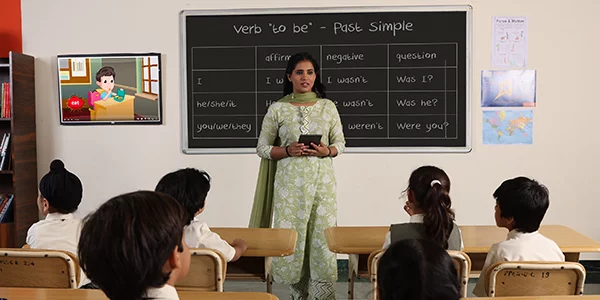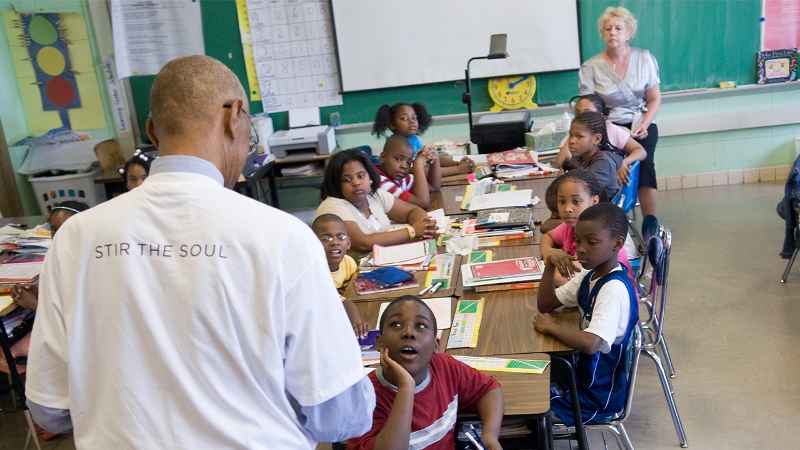Improve Your Child’s Performance with Primary Science Tuition Singapore
Improve Your Child’s Performance with Primary Science Tuition Singapore
Blog Article
Discover the Vital Benefits of Understanding Key Scientific Research for Young Students
The relevance of key scientific research education for young learners extends much past simple understanding purchase; it serves as a fundamental column in establishing vital skills such as crucial thinking, analytic, and imagination. Engaging with clinical ideas via inquiry-based and interactive tasks not only cultivates inquisitiveness but likewise lays the foundation for resistant, certain students.
Enhancing Vital Thinking Skills
Fostering vital thinking abilities in young learners is important for their cognitive growth and future scholastic success. Important reasoning makes it possible for children to examine info, review proof, and make notified decisions, which are essential abilities in today's information-rich culture. By taking part in clinical questions, young learners can improve these skills as they check out principles with testing, thinking, and monitoring.
In main scientific research education, instructors can help with essential thinking by motivating pupils to ask questions, develop hypotheses, and carry out experiments. This hands-on approach permits children to practice analytic and create rational thinking skills. For instance, when trainees examine the residential or commercial properties of materials or the concepts of motion, they learn to analyze their findings critically and attract verdicts based upon evidence.
Additionally, discussions and collaborative projects can advertise critical thinking by offering chances for students to articulate their ideas, obstacle presumptions, and take into consideration varied viewpoints. By producing a helpful environment that values questions and representation, teachers can nurture important assuming abilities that encourage young students to end up being independent thinkers and long-lasting learners. Eventually, improving these skills lays a durable foundation for their future academic endeavors and individual development.
Fostering Curiosity and Expedition

Main scientific research education offers a structured atmosphere where young learners can check out numerous phenomena through hands-on experiments and observations. By permitting them to engage with materials and take part in inquiry-based learning, instructors create possibilities for children to develop hypotheses, check their ideas, and attract final thoughts. Such experiences nurture a sense of marvel and exhilaration regarding science.

Building Self-confidence in Problem Fixing
Building confidence in analytic is a crucial element of primary science education that encourages young learners to approach challenges with strength and imagination - primary science tuition Singapore. They develop essential abilities in important thinking and evaluation when children are urged to involve with clinical ideas through hands-on activities and inquiry-based learning. This procedure not just enhances their understanding of clinical concepts but additionally cultivates a sense of possession over their knowing
To build self-confidence, teachers should develop a helpful environment where blunders are seen as opportunities for development as opposed to failings. This encourages pupils to take risks and discover different remedies to problems. By offering scaffolding you could try these out and guidance, educators can assist trainees browse intricate jobs, gradually enhancing their freedom in problem-solving situations.
Furthermore, collaborative knowing experiences, such as team jobs or experiments, can additionally enhance students' confidence as they discover to verbalize their ideas and listen to others' perspectives. These interactions support social skills and enhance the concept that problem-solving is typically a cumulative venture. Ultimately, growing self-confidence in problem-solving prepares young learners for future academic challenges and outfits them with the devices necessary for lifelong discovering.
Encouraging Creative Thinking and Development
In the realm of primary science education and learning, urging creative thinking and development is essential for growing a dynamic knowing atmosphere. By cultivating a society where young learners can explore concepts and experiment openly, educators assist students establish important believing skills and an interest for discovery. Imagination in science motivates kids to ask inquiries, devise hypotheses, and engage in hands-on activities that promote their creativity.
Integrating flexible projects and inquiry-based learning into the curriculum allows trainees to express their distinct viewpoints and solutions. When tasked with resolving a trouble related to their setting, trainees can brainstorm multiple approaches, leading to innovative outcomes that showcase their creativity. This not just strengthens their understanding of clinical ideas but also infuses a sense of possession over their discovering procedure.
In addition, creative science education nurtures cooperation amongst peers, as pupils usually share concepts and build on one an additional's insights - primary science tuition Singapore. This collective spirit promotes not just technology yet additionally vital social abilities. Thus, by prioritizing creative thinking and technology in key scientific research education and learning, we encourage young learners to think seriously, welcome obstacles, and picture possibilities, laying a strong foundation for lifelong discovering and exploration
Planning For Future Understanding Challenges
Young students' capability to browse future knowing difficulties depends upon a strong structure in main scientific research education. This foundational try these out understanding gears up pupils with important believing abilities and a methodical technique to analytical, necessary for taking on intricate problems in an ever-evolving world. Main scientific research cultivates inquiry-based understanding, urging pupils to ask inquiries, check out theories, and take part in hands-on experiments.
As they establish these skills, learners become adept at analyzing information, recognizing patterns, and drawing notified verdicts. Such competencies are crucial not only in clinical fields yet additionally look at these guys in engineering, innovation, and math (STEM), where interdisciplinary understanding is significantly essential.
In addition, main scientific research education and learning grows a feeling of inquisitiveness and strength in young learners, enabling them to view challenges as possibilities for growth. As they experience and conquer obstacles in their scientific explorations, they construct confidence in their ability to introduce and adjust.
Ultimately, a strong foundation in main scientific research not just prepares young students for scholastic searches however likewise outfits them with the devices essential for long-lasting learning and adaptability in a rapidly transforming international landscape. By purchasing key scientific research education and learning, we are purchasing the future possibility of our students.
Final Thought
Comprehending primary scientific research is important for young learners, as it promotes crucial reasoning, curiosity, and creative thinking. Eventually, the advantages of primary scientific research education prepare kids for future academic quests and infuse lifelong understanding practices crucial for prospering in an ever-evolving globe.
The significance of key science education for young students extends far past mere understanding procurement; it serves as an essential column in developing necessary skills such as vital reasoning, problem-solving, and imagination. By developing a supportive environment that values query and representation, educators can nurture important assuming skills that empower young learners to end up being independent thinkers and long-lasting learners. Hence, by prioritizing creativity and advancement in primary science education and learning, we encourage young learners to believe seriously, welcome challenges, and visualize opportunities, laying a strong foundation for long-lasting learning and exploration.
Young learners' capability to browse future understanding challenges hinges on a solid foundation in primary science education.Comprehending main science is vital for young learners, as it fosters crucial thinking, curiosity, and creativity.
Report this page